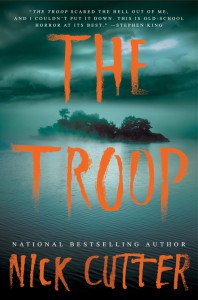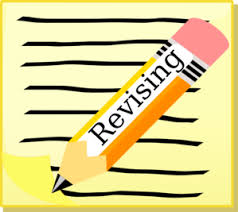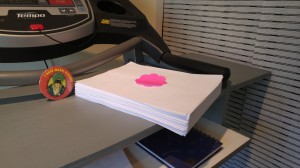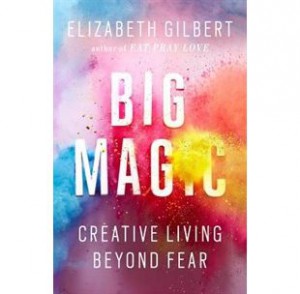 I spent the better part of the last few weeks digging for a few key pieces of information I needed in order to finish my latest novel, In Plain Sight.
I spent the better part of the last few weeks digging for a few key pieces of information I needed in order to finish my latest novel, In Plain Sight.
When I’m conceptualizing a book, I don’t think about the challenges I’ll face writing it. I think about the kind of story I want to tell and the best way to tell it. I think about my character, their story goal, and their character arc. I consider secondary characters too, and turning points and rising stakes and setting. I also think about setting.
In Plain Sight is set in Las Vegas and Los Angeles. I’ve been to both cities; I’m moderately familiar with them. And if I don’t know something, I know where to go to find the answer. I love research, I’m somewhat tenacious when it comes to digging, and I’m more than a little obsessive about making sure I have my facts straight. Thanks to all those years at the CBC, my old journalism roots go deep.
I was well into the story before I realized In Plain Sight might pose problems (This wasn’t as much naiveté as it was overwhelming enthusiasm to dive into the story and get the basics down).
The novel revolves around 16-year-old Farah Caliente who learns the father she thought was dead is in jail for committing an act of terrorism. Farah was an infant when it happened; she never knew the man. Her mother, who had nothing to do with the crime, was supposed to testify at his trial but she took Farah and bolted. Since then, she and Farah have been living under false identities. Hiding in plain sight, if you will. When her mother’s real identity comes to light and she’s taken into custody, Farah’s world is shattered. Life, as she knows it, will never be the same.
I was most interested in Farah. What does this mean to her? How does she cope? Who stands by her? Who doesn’t? And where does she go from here? But the story doesn’t play out in an emotional vacuum. Stuff happens. Legal stuff. Lots of it. And while much of it takes place ‘off the page’ it had to be realistic and it had to be factual.
I began to write. At the same time, I began to research some of the legal points I was fuzzy on. For every fact I uncovered there was another fact discounting the first one. I’m reasonably familiar with the Canadian judicial system but less so with the American one. After weeks of going around in circles (and writing around a few key points) I knew I’d need help. I put out feelers to a couple of U.S. law firms with PR departments. I didn’t get far. I put out more feelers to legal aid foundations and legal non-profit groups. I continued to strike out.
I could have changed the setting to Canada but I didn’t want to. As I’d structured the story, the terrorism act committed by Farah’s father would have taken place six months after 9-11. At that time, there was a huge backlash in the United States against anyone even remotely connected with terrorism. In fact, many innocent people were the subject of intense police scrutiny. I wanted that to be one reason Farah’s mother ran.
I could have paid for a legal consult. As I neared the end of my first draft, I considered it. But then I thought about my days in the newsroom when we’d be scrambling to find an expert. We always found one, often minutes before air time, generally when panic was setting in.
My panic was looming; that had to be a good sign. I took another shot at things, this time approaching the media departments of the Los Angeles County Superior Court and the Clark County Court systems. And rather than hitting them with all my questions, I selected the few I thought they’d best be able to answer. Success!
But I had one last hurdle to jump. So I turned to other writers. My plea for a U.S. legal source turned up a retired California attorney who was more than happy to answer my questions. Not only was Robin Wonder Siefkin able to comment and clarify the facts, she added a lawyerly layer of depth to the story that I hadn’t considered. While her input won’t stand out in the finished book, it is there. And without it, In Plain Sight would lack the realism and honesty I was shooting for.
Last week, I submitted the manuscript to the publisher. My digging is over. For the time being, at least.
 It’s allergy season around here. Like so many other climate-related things, it seems to be happening earlier and earlier. Years ago, my allergies would hit in June. We got married at the beginning of June and I was a congested mess for weeks before and after. I had a reprieve for many years and barely suffered at all. But this year, my hay fever is back, and it’s been uncomfortable for weeks. So I’m avoiding dairy, popping decongestants and working in the garden when the wind isn’t blowing the cottonwood around. When I come inside to read, I make sure I have tissues nearby.
It’s allergy season around here. Like so many other climate-related things, it seems to be happening earlier and earlier. Years ago, my allergies would hit in June. We got married at the beginning of June and I was a congested mess for weeks before and after. I had a reprieve for many years and barely suffered at all. But this year, my hay fever is back, and it’s been uncomfortable for weeks. So I’m avoiding dairy, popping decongestants and working in the garden when the wind isn’t blowing the cottonwood around. When I come inside to read, I make sure I have tissues nearby.


















Comments